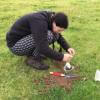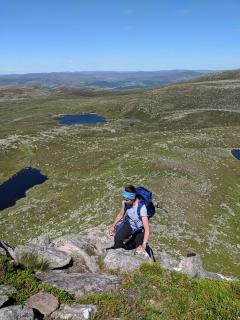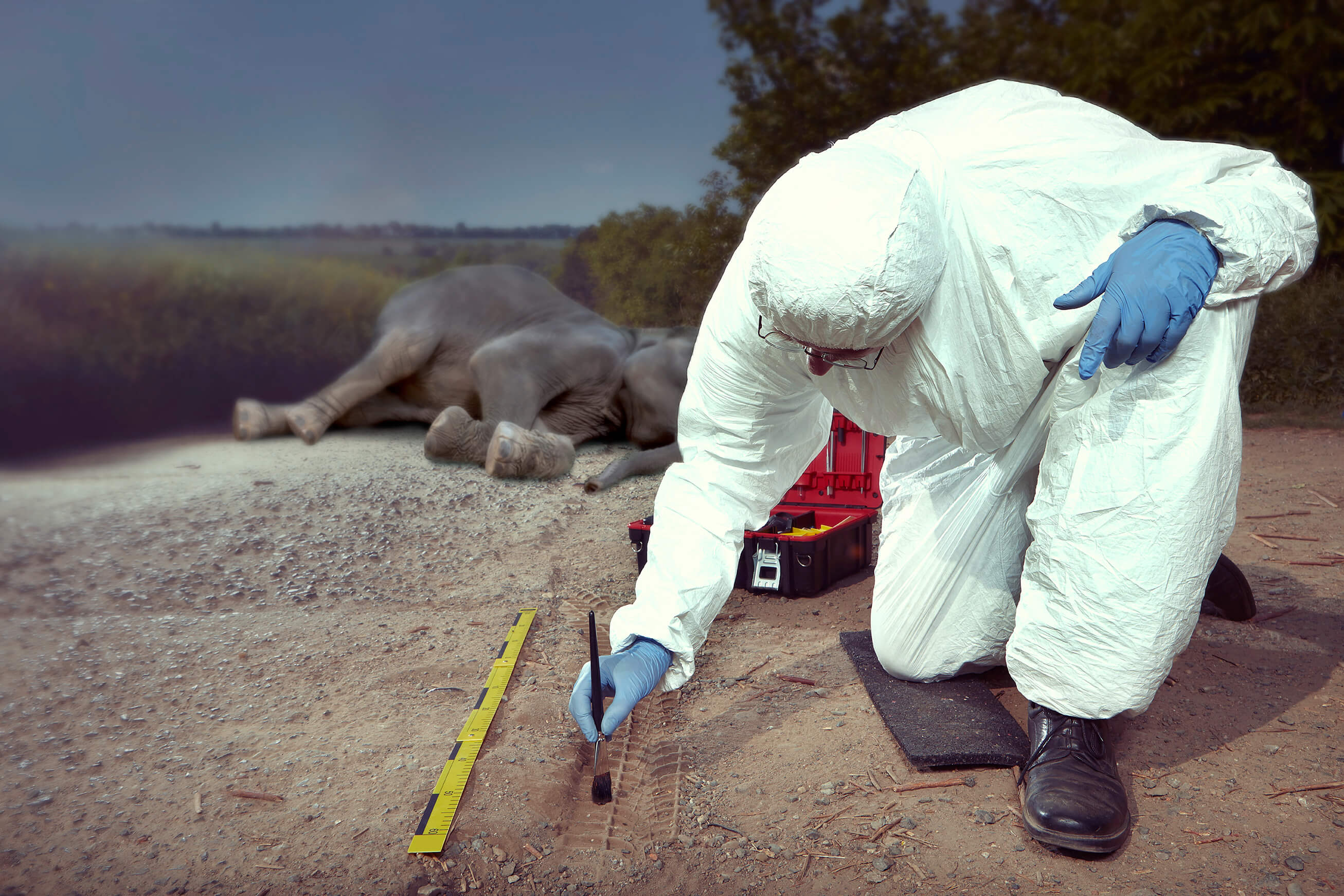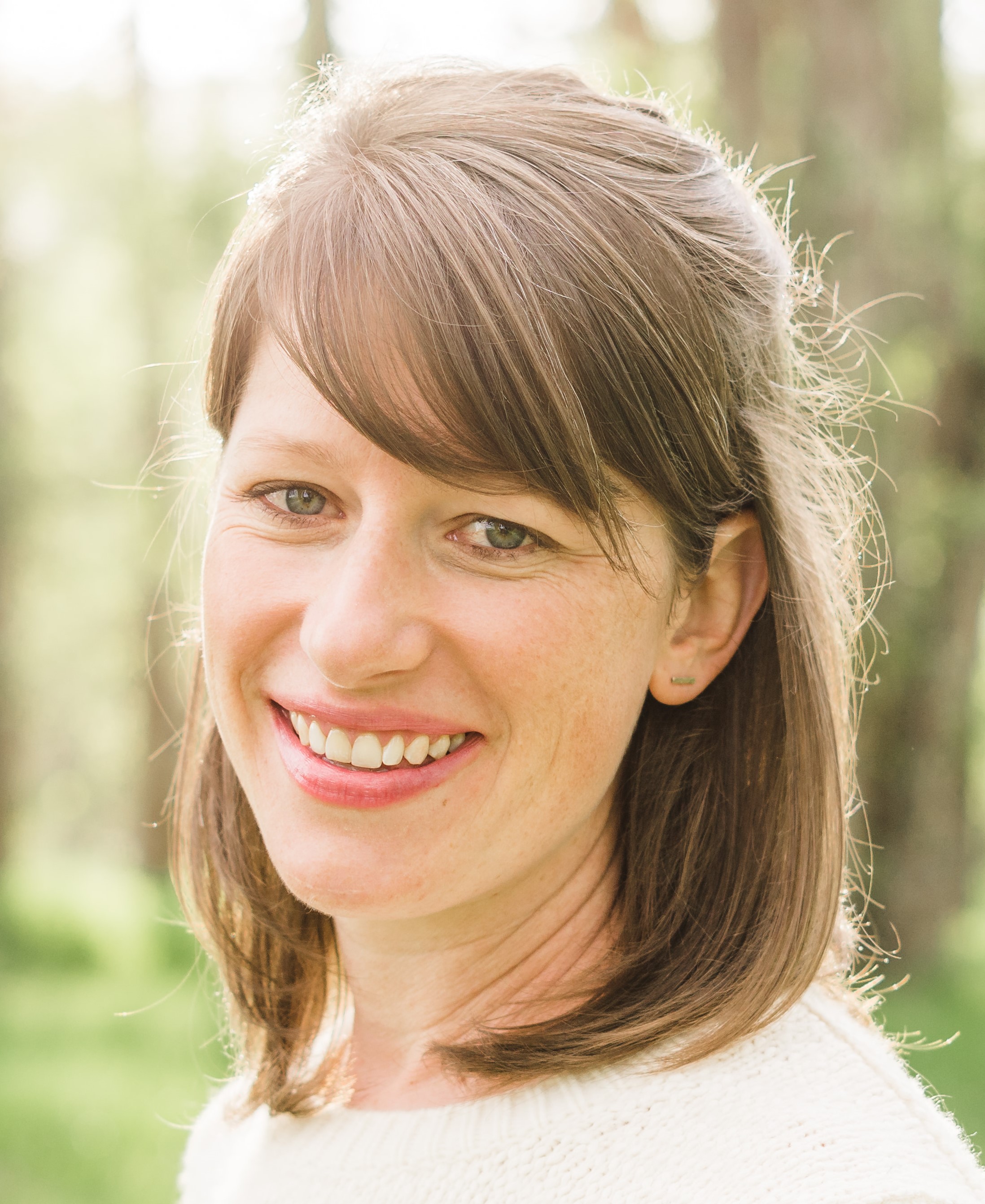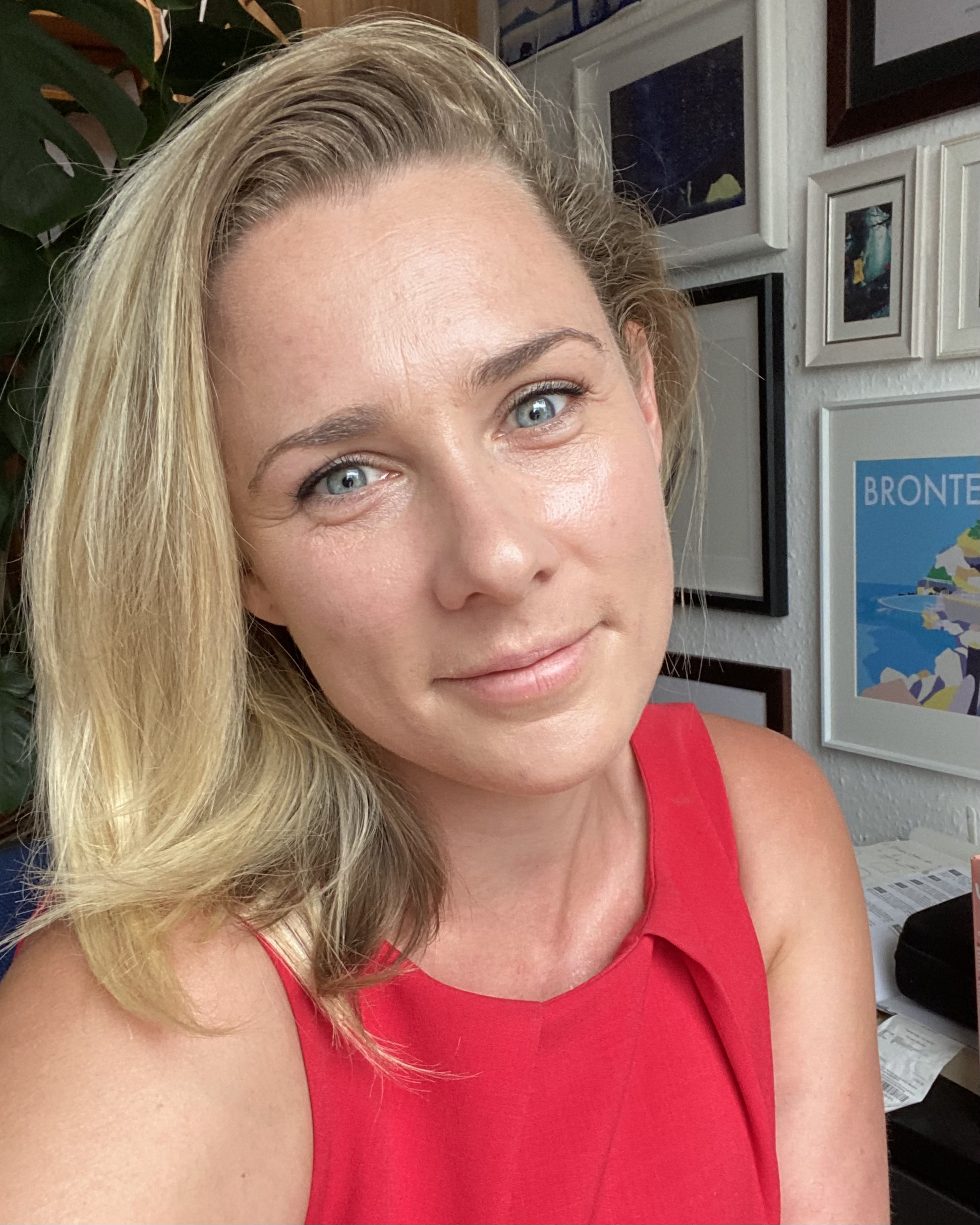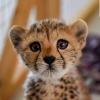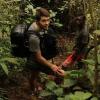With new technologies revolutionizing data collection, wildlife researchers are becoming increasingly able to collect data at much higher volumes than ever before. Now we are facing the challenges of putting this information to use, bringing the science of big data into the conservation arena. With the help of machine learning tools, this area holds immense potential for conservation practices. The applications range from online trafficking alerts to species-specific early warning systems to efficient movement and biodiversity monitoring and beyond.
However, the process of building effective machine learning tools depends upon large amounts of standardized training data, and conservationists currently lack an established system for standardization. How to best develop such a system and incentivize data sharing are questions at the forefront of this work. There are currently multiple AI-based conservation initiatives, including Wildlife Insights and WildBook, that are pioneering applications on this front.
This group is the perfect place to ask all your AI-related questions, no matter your skill level or previous familiarity! You'll find resources, meet other members with similar questions and experts who can answer them, and engage in exciting collaborative opportunities together.
Just getting started with AI in conservation? Check out our introduction tutorial, How Do I Train My First Machine Learning Model? with Daniel Situnayake, and our Virtual Meetup on Big Data. If you're coming from the more technical side of AI/ML, Sara Beery runs an AI for Conservation slack channel that might be of interest. Message her for an invite.
Header Image: Dr Claire Burke / @CBurkeSci

Explore the Basics: AI
Understanding the possibilities for incorporating new technology into your work can feel overwhelming. With so many tools available, so many resources to keep up with, and so many innovative projects happening around the world and in our community, it's easy to lose sight of how and why these new technologies matter, and how they can be practically applied to your projects.
Machine learning has huge potential in conservation tech, and its applications are growing every day! But the tradeoff of that potential is a big learning curve - or so it seems to those starting out with this powerful tool!
To help you explore the potential of AI (and prepare for some of our upcoming AI-themed events!), we've compiled simple, key resources, conversations, and videos to highlight the possibilities:
Three Resources for Beginners:
- Everything I know about Machine Learning and Camera Traps, Dan Morris | Resource library, camera traps, machine learning
- Using Computer Vision to Protect Endangered Species, Kasim Rafiq | Machine learning, data analysis, big cats
- Resource: WildID | WildID
Three Forum Threads for Beginners:
- I made an open-source tool to help you sort camera trap images | Petar Gyurov, Camera Traps
- Batch / Automated Cloud Processing | Chris Nicolas, Acoustic Monitoring
- Looking for help with camera trapping for Jaguars: Software for species ID and database building | Carmina Gutierrez, AI for Conservation
Three Tutorials for Beginners:
- How do I get started using machine learning for my camera traps? | Sara Beery, Tech Tutors
- How do I train my first machine learning model? | Daniel Situnayake, Tech Tutors
- Big Data in Conservation | Dave Thau, Dan Morris, Sarah Davidson, Virtual Meetups
Want to know more about AI, or have your specific machine learning questions answered by experts in the WILDLABS community? Make sure you join the conversation in our AI for Conservation group!
- @BrunaTeixeira
- | She
Master and PhD student in the Postgraduate Program in Animal Biology. She works mainly in Landscape Ecology with an emphasis on bioacoustics and interactions between primates.

- 0 Resources
- 0 Discussions
- 2 Groups
- @hannahrisser
- | She/her
CEH
- 0 Resources
- 0 Discussions
- 10 Groups
- @Mathilde
- | she/her
Natural Solutions
Engineer, I work for a web development company on web application projects for biodiversity conservation. I'm especially interested by camera traps, teledetection and DeepLearning subjects.
- 0 Resources
- 0 Discussions
- 11 Groups
I am an enthusiastic computer scientist, fascinated by animals and I want to collaborate in conservation project ! :D
- 0 Resources
- 1 Discussions
- 3 Groups
Max Planck Institute of Animal Behavior
Behavioral Ecologist
- 1 Resources
- 1 Discussions
- 14 Groups
Data scientist with expertise in Computer vision and remote sensing and a passion to work for the environment.
- 0 Resources
- 2 Discussions
- 3 Groups
Wildlife Drones
Wildlife Drones has developed the world’s most innovative radio animal-tracking system using drones so you can track your radio-tagged animals like never before.
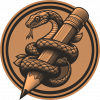

- 18 Resources
- 8 Discussions
- 32 Groups
- @aardrop
- | he/him
Naturalist and technologist working to support the people behind nature
- 0 Resources
- 4 Discussions
- 2 Groups
- 0 Resources
- 0 Discussions
- 6 Groups
- @lobrien
- | he/him
Low K-Shot Animal Reidentification pipelines
- 0 Resources
- 6 Discussions
- 5 Groups
International Union for the Conservation of Nature (IUCN)
Key Biodiversity Areas Programme Officer, IUCN
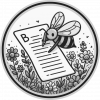
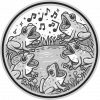

- 0 Resources
- 89 Discussions
- 8 Groups
- 0 Resources
- 0 Discussions
- 1 Groups
Wildlife on roads creates a significant hazard in rural areas, to humans and animals alike. Low-tech prevention methods such as overpasses give great results, but they are expensive and can’t cover every scenario. Now...
12 November 2024
The San Diego Zoo Wildlife Alliance Conservation Technology Lab seeks a postdoctoral associate for a three-year position applying their machine learning expertise to bioacoustics problems in ecology and conservation.
1 November 2024
The library enables to derive biophyiscal maps with a few lines of code (only requirements: region of interest, temporal domain and satellite sensor). All processing runs in the cloud using the openEO API and hence no...
20 October 2024
Very nice video!
7 October 2024
Paper by Natalie Klug et al
6 October 2024
The Marine Innovation Lab for Leading-edge Oceanography develops hardware and software to expand the ocean observing network and for the sustainable management of natural resources. For Fall 2025, we are actively...
6 October 2024
With this call, ESA offers 1-year fellowships to four African researchers to work at the ESA-ESRIN premises in Frascati (Rome, Italy) in collaboration with ESA scientists
4 October 2024
Based in the EU
3 October 2024
The Connected Conservation is thrilled to announce our award's third round in collaboration with the Airbus Foundation. This award champions the use of cutting-edge satellite imagery to tackle biodiversity loss and...
30 September 2024
The African Bioacoustics Conference!
18 September 2024
June 2025
event
July 2025
October 2025
event
event
February 2023
event
event
January 2023
73 Products
Recently updated products
16 Products
Recently updated products
| Description | Activity | Replies | Groups | Updated |
|---|---|---|---|---|
| Hi Sophie, Can you please help me or get in touch in developing a system where we are able to detect an Elephant? Would like to discuss more about it. Kindly treat this as urgent!! |
+8
|
AI for Conservation | 2 years 4 months ago | |
| Hello All - @sarabeery et Al have just put a pre-print out on their educational insights into teaching Computer Vision to ecologists. I... |
|
Acoustics, AI for Conservation, Conservation Tech Training and Education, Early Career, Emerging Tech | 2 years 4 months ago | |
| The Conservation Technology Lab at San Diego Zoo seeks undergrads for summer projects in computer vision, machine learning, bioacoustics,... |
|
Acoustics, AI for Conservation, Conservation Tech Training and Education | 2 years 5 months ago | |
| I just came across this interesting paper in which seismic monotoring of animals like elephants was mentioned. This is the study refered to:Cheers,Lars |
|
AI for Conservation, Camera Traps, Emerging Tech, Ethics of Conservation Tech, Human-Wildlife Conflict, Geospatial, Sensors | 2 years 5 months ago | |
| Quick reminder that the deadline for applications is just shy of a week away. This workshop is particularly geared to teach ecologists computer vision tools to apply to their... |
|
Conservation Tech Training and Education, AI for Conservation | 2 years 5 months ago | |
| Hahaha, now I see why you were asking ... |
|
AI for Conservation | 2 years 5 months ago | |
| Hi all, one of the 8 MozFest 2023 spaces is 'Tech & Biodiversity', and the organisers seek input for an event on the intersection of... |
|
AI for Conservation, Ethics of Conservation Tech, Open Source Solutions | 2 years 6 months ago | |
| Out of curiosity, what are the similarities/differences between your platform and other image classification ones such as Wildlife Insights, WildID, ZambaCloud? I don't mean that... |
|
AI for Conservation, Emerging Tech | 2 years 7 months ago | |
| Thanks so much!! |
|
Acoustics, AI for Conservation, Animal Movement, Camera Traps, Community Base, Data management and processing tools, Drones, eDNA & Genomics, Emerging Tech, Open Source Solutions, Geospatial, Software Development | 2 years 8 months ago | |
| Hi there Camilo, What an interesting project! If you are looking for a lower cost, but effective tools for acoustic monitoring you might want to look into two options: ... |
|
Acoustics, AI for Conservation, Data management and processing tools, Sensors, Software Development, Latin America Community | 2 years 8 months ago | |
| Hi Yvan,If you find something which reaches your expectation and especially the ability to identify individual with plumage patterns I will be intereted.In the same idea that... |
|
AI for Conservation, Camera Traps | 2 years 9 months ago | |
| Have you considered creating a Kaggle competition? If you already have lots of images, and some that have been labelled, then this could be a good way to get people working on a... |
|
AI for Conservation, Autonomous Camera Traps for Insects, Camera Traps | 2 years 9 months ago |


